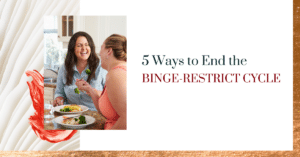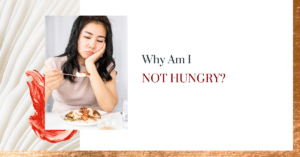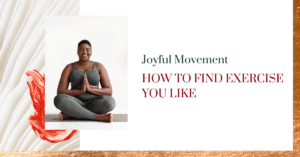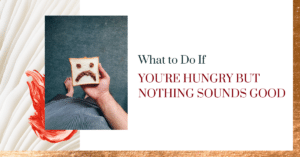What is ‘Diet Culture’?

If you’ve been around here a while you’ve probably seen the term ‘diet culture’ thrown around, but it’s not always explained in detail. So, today I wanted to clear up any confusion and fill in the blanks by talking about what ‘diet culture’ actually is and what it means for you and the intuitive eating, non-diet movement.

For many of us – even most of us – dieting, the goal of losing a few pounds or attaining ‘body goals’ has been a regular part of life. Maybe there are times when it’s more frequent – like as we approach summer, or around the holidays and big life celebrations – but it’s something that most of us can all relate to or have been involved in. It’s also something that’s totally accepted as normal because we live in a dieting culture.
Western culture equates thinness to health, happiness, attractiveness, and worthiness, a system of beliefs that is often referred to as diet culture. In our society, to be thin is to be seen as “ideal” and morally superior, whereas to be fat is to be seen as unhealthy, lazy, and a failure. We are taught from a very young age that body size and the foods a person chooses to eat reflect their worth as an individual. Eating “bad” or “unhealthy” foods makes you a bad person, whereas eating “good” foods and trying to diet down to a smaller size is seen as virtuous. In this way, our culture promotes dieting and weight loss as a way to achieve a higher status.
We are indoctrinated into a culture of dieting and weight “control” from a very early age. Diet culture is pervasive in almost every aspect of our society. We are exposed to it throughout our medical system, education system, public health entities, and all forms of media, including news programming, advertising, television, and films. It’s so insidious that it can often be difficult to identify. We are so used to its existence that we don’t even question it. Yet when you start paying attention, you’ll notice how pervasive diet culture is.
This is how so many get stuck in the dieting cycle and develop disordered relationships with food. We’re taught how to diet, but not often taught how to eat for enjoyment, satisfaction and nourishment. If diet culture was an animal, it would be a unicorn telling every single one of us that if we *just* ate the “right” foods and exercised enough we could all be unicorns too. But that is not the case.
Long story short, diet culture lies.
Examples of Diet Culture
Diet culture is everywhere. When you start to notice and recognize the vast reach of diet culture, you’ll begin to notice everyday statements and conversations that are fueled by it:
- Commenting on a meal, “Oh, I could never eat that; if I did, I’d be huge!”
- Planning to “start over on Monday.”
- Using terms like bad, naughty, guilty pleasure, or indulgence to describe food.
- A grocery store clerk complimenting a shopper for being “so good” for having so many “healthy” foods in their grocery cart.
- Going to see a doctor for an earache and being told you need to lose weight.
- Fat people portrayed on TV or in movies as the “bad guy” or as the lazy, stupid, and/or funny sidekick.
On the surface, these statements may not seem shocking, and that’s partly because we hear many of them every day so they’ve become normalized. But all these examples are all grounded in the idea that a smaller body is a healthier, more desirable, more deserving than a larger body. And this ever-present diet culture has a huge effect on our bodies, our minds, and our lives.
Not to mention that it objectifies and elevates thin, white bodies while oppressing and marginalizing fat, BIPOC (Black, Indigenous and People of Color) bodies. This diet culture—and the resulting diet industry—was birthed by a patriarchal, Eurocentric culture that rose to power through exploiting, oppressing, and controlling other people’s bodies. In other words, diet culture, and the dieting industry, is inherently sexist, racist, and ableist—even if people don’t realize it.
In the United States, the diet industry takes advantage of the insecurities and lack of self-trust instilled in us by diet culture. It then makes more than $70 billion per year capitalizing off of our shame.
The dieting industry continues to grow year over year, making billions of dollars by convincing us that our bodies need to be changed and that we can’t trust ourselves to determine how to eat. It preys on our insecurities, which have developed as a result of growing up in a diet culture, and compels millions of people every year to spend massive amounts of time, money, and energy trying to lose weight.
Diet culture is the reason that moving away from dieting and choosing to respect and work with your body – instead of constantly trying to change it – is so radical. We’ve all been subjected to diet culture messages and have been conditioned to believe that not only does thinness and dieting equate to health, but that the pursuit of health makes one person morally superior to another.
Diet culture is also what keeps us on that dieting cycle by feeding us the narratives that you’re ‘just one more diet’ away from beauty, success, happiness, etc. It’s what convinces us to spend our time, money and energy chasing standards of health and beauty that are created by the dieting and beauty industries. The diet industry makes its money by persuading you that the next time you try will be different. That if you just buy its product or service, you will finally lose weight.
Diet culture is what teaches us that our self-worth and abilities are tied to our physical appearance and what positions ‘diets’ as the answer to all our insecurities, struggles and problems. But if you look at your past experience with dieting, you can likely see that’s not true.
Diet culture consistently over-promises and under-delivers.
Places you might spot diet culture messages:
- A gym program that sells you a certain look or weight after 8 weeks of their classes.
- Why? One of my favorite quotes by Beth Pilcher, LMSW sums it up perfectly, “Even if we all ate and exercised exactly the same, our bodies would still look different”. Which is why we cannot guarantee any specific results like a change in X lbs or inches. If the program promotes fun, engaging and challenging movements – that’s something that is more inclusive, realistic and health-promoting for everyone.
- Spa treatments that claim to shrink your body.
- Why? Diet culture is not only about food, the beauty industry is also on board with treatments and products that promise to transform us in just “30 minutes or less.” These treatments are often expensive, inaccessible to most of the population and promote an aesthetic or look, instead of any actual marker of health.
- Foods advertised as “guilt-free” or “clean.”
- Why? These labels assign a moral value to foods and create doubt about foods that don’t have these labels, leading to more stress and confusion around food choices in general. Guilt is never an ingredient so all foods are ‘guilt-free’ and the term ‘clean’ doesn’t mean anything either. As long as you’re washing your hands and your produce, it’s clean!
- In tag-lines that imply your weight = your worth or happiness.
- Why? Just because someone is healthy doesn’t mean they’re happy, and just because someone is happy doesn’t mean they’re healthy. And neither of those things are dependent on your weight! Assigning a weight requirement to health and happiness perpetuates the idea that there is a certain look to health, there isn’t.
- In products or supplements that imply health requires exorbitant cost, time, energy and privilege.
- Why? This is an example of health-ism, the idea that your worth as a person is determined by your health and your pursuit of health.
How Diet Culture Undermines You
Diet culture has created an arbitrary expectation of what we are supposed to look like and how we are supposed to act. Our culture has caged us. We’ve been conditioned and programmed to believe that to be loved, accepted, and valued in society, we must strive to be thin (and young, and white, and beautiful, and perfect).
On an individual level, this cage makes us lose sight of ourselves, to abandon our intuition, wants, and desires. We spend our lives punishing ourselves and trying to make ourselves smaller to comply with society’s expectations of what an “ideal” and a “good” body is. On a collective level, diet culture functions as a way to oppress large swaths of the population.
Looking back at the statements and examples I just gave about diet culture, you may be wondering why some of these things are harmful. As a client said to me recently, “But certain foods are better for us than others. I do eat better and feel differently when I am paying attention to what and how much I’m eating.”
I understand this sentiment and why it may seem confusing that certain aspects of diet culture are harmful. Yes, certain foods do have more nutrients than others. And yes, eating certain things may make your body feel better or worse. However, although food rules and beliefs I shared may not seem harmful on the surface, they’re all grounded in the belief that our food choices affect our worth and that a thin body is better than a fat body.
These beliefs and rules—and the diet culture that reinforces and perpetuates them—are what keep you disconnected from your body. It’s impossible to honor your body and give it what it needs—nutritionally or otherwise—when you’re caught up trying to follow external rules or diet mentality.
Diet culture and diet mentality have a host of other negative side effects, including:
- Increased preoccupation with food and your body
- Lower self-esteem
- Higher rates of disordered eating behaviors and eating disorders
- Increased stress
- More frequent binging
- Increased cravings
- Decreased confidence
- Higher rates of weight cycling or yo-yo dieting (linked to increased risk of certain diseases)
Not only can diet culture harm physical and mental health but it can interfere with so many facets of life. Diet culture undermines your true self and causes you to miss out on life.
I can’t tell you how many women I know who have avoided dating and intimacy because they were afraid of what the other person would think of their bodies. Or who canceled plans because they were on a diet or were worried about being around so much food. Or who find themselves less present around family and friends because they are worried about what others may be thinking. Diet culture steals our time, money, and energy. But you can take that all back.
How to Move Away From Diet Culture
To move away from dieting, you need to be aware of all the ways diet culture is present, both outside you and within you. Once you are aware of the behaviors, thoughts, or feelings that constitute diet mentality, you can begin to give them up. Reject the Diet Mentality is the first principle in the Intuitive Eating framework, as described by Evelyn Tribole and Elyse Resch. It involves the following:
- Step 1: Reflect upon and acknowledge the harm that diet culture and diet mentality have caused. What has your history with dieting shown you? How has it been damaging? How have you held yourself because of dieting?
- Step 2: Bring your awareness to the ways diet culture and diet mentality show up both externally outside of you, and internally with your thoughts, feelings, beliefs, and behaviors.
- Step 3: Once you are aware of the various ways diet culture and diet mentality are appearing, bring it into your consciousness by actively identifying problematic thoughts, beliefs, behaviors (internally and externally) and calling them out for what they are: “This is diet mentality.” or “That is diet culture.”
- Step 4: Begin to challenge your thoughts and beliefs and shift your behaviors. You may still have thought to restrict or not to eat a certain food, but can you change your behavior anyway?
You won’t necessarily move through these four steps linearly. Step 1, in particular, is one that most people will need to return to throughout this process (and honestly, throughout their lives).
Diet culture is sneaky and persistent. As you do the internal work to move away from dieting, diet culture will continue to pop up in a multitude of ways. Whether it’s a well-meaning family member sending you information about a new diet, a doctor recommending that you lose weight for “your health,” or an Instagram ad sneaking its way into your feed—diet culture is everywhere.
Remind yourself that the dieting industry is a $70 billion per year monolith with the sole purpose of making you feel “less than” so that you fork over your money, time, and energy to try to lose weight.
The dieting industry profits off of your shame and oppression. Remember, the dieting industry was not born out of a desire to make us all healthier. It began as a way to oppress Black people and to keep anyone other than white men down and “othered.”
Today, diet culture and the dieting industry continue to oppress fat people and harm people of all sizes, especially women and people of color, who live in a world where disordered eating behaviors are normalized.
Getting out of diet culture’s cage and rediscovering our true selves starts by confronting and challenging our beliefs (instead of blindly following them, as we’ve been taught to do). Things that we have taken as norms need to be turned upside down and questioned.
If you’re still feeling unsure or nervous about giving up the diet mentality, know that the feeling is normal. This journey is a process, and it takes time. Letting go of something you’ve used for a while, even if it hasn’t always worked how you wanted it to, can be tough.
Making the change can also be difficult if you’re still surrounded by people who are wrapped up in diet culture. I highly recommend creating an ‘anti-diet bubble for yourself: change who you follow on social media; read books that talk about intuitive eating and body liberation; think critically about the television shows and movies you watch; opt out of diet conversations or body-bashing sessions. Although you will never be able to avoid diet culture completely, you can take steps to move away from it and filter it out in certain aspects of your life.
Looking for more support as you divest from diet culture?
Check out my Unapologetic Eating 101 Course, an online, self-paced program to liberate yourself from dieting and make peace with food and your body.
My team and I also offer virtual one-on-one support – you can check out our virtual intuitive eating nutrition coaching packages.
My book, Unapologetic Eating: Make Peace with Food and Transform Your Life, is also a great resource that includes information, research, and reflection prompts to help you move away from dieting and come back home to your body, so you can live your most unapologetic, liberated life.
Author Bio
This article was written and reviewed by Alissa Rumsey, MS, RD, CSCS, a registered dietitian and Certified Intuitive Eating Counselor. She specializes in weight-inclusive care, intuitive eating, body image healing, mindfulness, self-compassion, and healing from chronic dieting, disordered eating, and eating disorders. Alissa holds a Bachelor’s Degree in Nutrition and Exercise Science, and a Master’s Degree in Health Communications, and is also an NSCA Certified Strength and Conditioning Specialist.
4 Comments
Leave a Comment
share the love

about
Alissa Rumsey, RD.
Alissa Rumsey, MS, RD, CDN, CSCS (pronouns she/her/hers) is a registered
dietitian, nutrition therapist, certified intuitive eating counselor, and the author of
Unapologetic Eating: Make Peace With Food and Transform Your Life. Alissa is
passionate about helping people reclaim the space to eat and live,
unapologetically.

A twice-a-month round-up of inspirational stories, lessons, practical tips and encouragement for living your most authentic, unapologetic life.
The Unapologetic Life
RECENT POSTS

The Unapologetic Life
A twice-a-month round-up of inspirational stories, lessons, practical tips and encouragement for living your most authentic, unapologetic life.











I noticed the ads regarding the diet culture. Massive ads.
I read on the hunger scale and have been trying to use it.
Thanks
Yes Sharmain, infuriatingly those ads are everywhere!
My news feed is full of variations on ” new year, new you” related to some diet program or another.
Ugh yes, this can be so frustrating! If they are ads, you could try ‘reporting’ them and/or telling the social media platform that you don’t want to see those ads. If it’s people you’re following, you may consider doing a bit of a ‘social media detox’ – there’s so more info on that here: http://www.alissarumsey.com/socialmedia